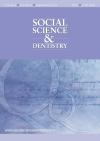Social Science and Dentistry

- Cover Date:
- June 2014
- Print ISSN:
- 2040-4263
- Vol:
- 3
- Issue:
- 1
Testing fidelity in Motivational Interviewing oral health interventions: an example
Objective: Despite increasing use of MI in oral health settings, little attention has been paid to the integrity of MI delivery (fidelity). In the third of four MI fidelity in oral health manuscripts, we provide an example of MI fidelity assessment in an oral health intervention. Methods: A randomised trial was conducted to evaluate effectiveness of a MI intervention on oral health outcomes among low-income African-American children. A total of 1,021 children aged 0–5 years and their caregivers were randomly selected. The intervention comprised oral health-specific MI and a DVD regarding oral health education. All MI interviews were recorded, with a randomly selected subset (n = 152, 38.4%) tested for MI fidelity by staff trained in the MITI code. Of this subset, a randomly selected 30 taped sessions were additionally scored by an external group to assess external reliability of the MITI coding. An overall measure of fidelity was created as well as scores for global ratings of empathy and motivational interviewing spirit (comprising evocation, collaboration and autonomy). Percentage of open questions and total reflections were summed. Results: When assessed by Detroit Project staff training in the MITI code, all global and behavioural elements compared favourably with recommended MI fidelity standards. Intra-assessor reliability was also high (no ICCs below 0.80). However, the ICCs for different domains reflecting the MITI code for inter-assessor reliability were consistently poor; ranging from 0.25 (total complex reflections) to 0.95 (sum open- + close-ended questions) for one staff member and -0.07 (total complex reflections) to 0.87 (sum open- + close-ended questions) for another. Conclusions: In this large study, fidelity to the MI model was modest to poor. The findings illustrate the importance of: (1) selecting staff and researchers who are willing to change; (2) confirming fidelity before project commencement; (3) assessing fidelity throughout study and; (4) independent evaluation of MI integrity.
Key words: Motivational Interviewing, fidelity, oral health
- Article Price
- £15.00
- Institution Article Price
- £
- Page Start
- 10
- Page End
- 13
- Authors
- A Ismail, S Ondersma, S Naar-King, L M Jamieson
Articles from this issue
- Title
- Pg. Start
- Pg. End
- An ethical dilemma: our current understanding of prevention in primary dental care. A qualitative study
- 17
- 26
- Beyond social determinants: a neo-Marxist approach to understanding the causes of the social determinants of inequalities in oral health
- 27
- 33
